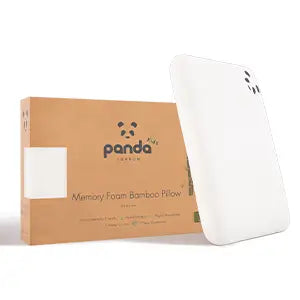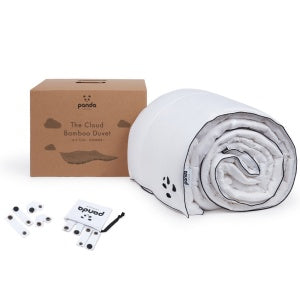How do you know when it’s autumn? Is it your first sighting of a pumpkin latte, or is it when your commute suddenly descends into darkness? There’s a difference of opinion on when autumn officially starts: the meteorological autumn begins on the 1st September; however, it can also be defined by the equinox on the 22nd or 23rd September. The equinox is one of the two times in a year when the sun crosses the plane of the Earth's equator, and day and night are of equal length.
Apart from bringing in a trail of leaves every time you’re back from a walk, you might start to notice that you feel much more tired in autumn. So why do we feel sleepier during these months of the year? Less light exposure, the temperature and your hormones all contribute to feeling more tired.
How does less daylight affect circadian rhythm?
Several scientific studies show that reduced daylight disrupts our internal clock (aka our circadian rhythm). Our bodies have different hormonal responses which control our sleep-wake cycle.
SCN
Your master clock lives in the suprachiasmatic nucleus (SCN). It syncs to the 24-hour day using daylight as a time cue, detected by cells in your eyes. Short and dark autumn days deliver less light intensity and fewer light minutes, so the SCN receives a faint signal, and its rhythm can delay, drift or become less robust.
Melatonin
Melatonin is a hormone produced by the pineal gland in the brain that regulates the sleep-wake cycle. In simple terms, darkness signals to your body to produce more melatonin – communicating to your body it’s time to sleep. In autumn, the days are shorter, so you feel sleepy earlier.
Cortisol
A steroid hormone produced by the adrenal gland, cortisol plays a role in the stress response. Helping with your sleep-wake cycle, cortisol peaks just after waking and then tapers at night. Less daylight plus bright evenings disrupts this curve—less morning get-up-and-go, more midday slump, and a ‘wired but tired’ evening.
Serotonin
A neurotransmitter and hormone produced by the gut and your brain, serotonin regulates bodily functions, mood, digestion and sleep. This is reduced when there’s less sunlight. Serotonin also helps you to produce melatonin.
What is the Hibernation instinct?
The ‘hibernation instinct’ is an animal's built-in drive to hide away when conditions are harsh (usually winter). Still, as human beings, we can also feel inclined to a low-energy state as it starts to get colder. Guided by our internal clocks and hormones that respond to cues like shortening day length, falling temperatures, and less daylight, we feel a draw to stay cosy and warm indoors.
Does heat make me feel sleepy?
You may relish the thought of hunkering down on the sofa in a heated blanket after a long day at work, but heat makes you feel drowsy. You actually need to feel cooler to promote sleep – approximately a temperature of 18–20°C. If you’re too warm, you’ll feel restless and sweat; it’ll also reduce the amount of deep sleep you get.
Bamboo is naturally thermoregulating and highly breathable, so if you’re too hot in bed, it’ll keep you dry and comfortable, and correct your temperature for a deep restorative sleep. Treat yourself to a duvet day when the weather gets dark and cold – wrap yourself up in the Panda Cloud Bamboo Duvet. Fluffy and snug, it’s made from super-soft bamboo for cloud-like comfort all year round. With a 10.5 tog rating and a 300 thread count, you’ll find it hard to emerge from under it.
Is my mood affected by lower serotonin levels?
As serotonin helps to regulate mood, sleep, appetite, and impulse control in the brain, when serotonin activity is reduced, people can experience lower mood, irritability, anxiety, poorer sleep, less energy and more impulsivity. An extreme form of altered mood in the autumn and winter is known as SAD.
SAD
Seasonal Affective Disorder, or winter depression, is a form of depression that follows a seasonal pattern, most often starting in the autumn and easing in spring when daylight increases. Recognised as recently as the 1980s, according to the NHS, SAD affects approximately 2 million people in the UK and 12 million across northern Europe. People who live closer to the poles are more affected by reduced sunlight exposure in these regions.
If your tiredness comes with persistent low mood, oversleeping, cravings, or loss of interest, it could be SAD. It’s treatable — talk to your GP about light therapy, CBT, or antidepressants if needed.
Physical Tiredness vs Emotional Fatigue
If you want to know the exact source of your tiredness, and whether it is your hormones or you’re tired from work, home responsibilities or other health issues, check below the differences we’ve outlined between physical tiredness and emotional fatigue.
Physical Tiredness
- Heavy limbs
- Sleepiness
- Lack physical motivation rather than mental
- Slow reactions
- You feel better after rest
- Muscle soreness
Emotional Fatigue
- Overwhelmed
- Easily irritated
- Insomnia due to racing thoughts
- Poor focusHeadaches
- Lack of mental motivation to do things
- Knot in the stomach
Do changes in lifestyle factors contribute to tiredness?
The Danes have a word for the happiness evoked by cosy feelings from staying indoors: hygge. While eating rich and indulgent food and a day of doing nothing is good for you now and again, if you make a habit of it, this contributes to tiredness. Less time spent outdoors, comfort eating, and fewer workouts all lead to feeling sluggish, a slower metabolism, and disrupted sleep.
Our Bamboo Mattress Topper will refresh both your mattress and your sleep routine. Designed with gel-infused memory foam, HydroFoam™, you’ll receive adaptive support, aligning the spine as you sleep. Thermoregulating, antibacterial and hypoallergenic, you’ll feel rejuvenated after just one night.
How can I feel more energetic in autumn?
Despite the lack of sunlight and the lower temperatures that make you feel sleepier, there are tried-and-tested ways to boost your energy levels.
Here are some tips to add a spring to your step in the autumn.
- Maximise your daylight exposure: take morning walks to increase your vitamin D levels.
- Keep a consistent sleep schedule – go to bed and wake up at the same time.
- Stay active even on grey days.
- Adjust your diet with lighter, energising meals with slow-burning food groups such as grains, eggs, avocado, chicken, oats and brown rice
- Use warm light rather than bright light in the evenings to support healthy sleep rhythms. Limit blue light exposure from screens.
Conclusion
With shorter days and the sun appearing less often, feeling sleepier in the colder months is normal. It’s a natural shift in rhythm. As light levels drop, your brain produces more melatonin, your sleep hormone, and less serotonin, the mood-boosting chemical that keeps you alert. Combine that with more cosy nights in and comfort-food cravings, and it’s no surprise you’re stifling yawns regularly.
Work with the season: get outside for daylight exposure, keep a consistent sleep schedule, eat balanced meals, and move your body regularly. With a few mindful changes, you can stay energised — and even enjoy the slower, restorative pace that autumn naturally invites. Don’t fall into the eat, sleep, repeat pattern – make sure you try to find ways to spark joy in the darkness.

![[MattressTopper] Panda London Memory Foam Bamboo Mattress Topper package box](http://pandalondon.com/cdn/shop/files/Bamboo_Mattress_Topper_Package_Box.webp?v=1742301823&width=1500)
![[MattressTopper] Panda London Memory Foam Bamboo Mattress Topper on the floor](http://pandalondon.com/cdn/shop/products/Panda-Memory-Foam-Bamboo-Mattress-Topper-Yoga-e1624045454555.jpg?v=1758795458&width=1000)
![[MattressTopper] Bamboo Mattress Topper Lifestyle Image with Memory Foam Pillows Product Page](http://pandalondon.com/cdn/shop/files/Bamboo_Mattress_Topper_Lifestyle_Image_with_Memory_Foam_Pillows_Product_Page.webp?v=1758795458&width=800)
![[MattressTopper] Bamboo Mattress Topper Lifestyle Image with Bamboo Pillows In the Garden room Product Page](http://pandalondon.com/cdn/shop/files/Bamboo_Mattress_Topper_Lifestyle_Image_with_Bamboo_Pillows_In_the_Garden_room_Product_Page.webp?v=1758795458&width=800)
![[MattressTopper] Panda London Memory Foam Bamboo Mattress Topper side](http://pandalondon.com/cdn/shop/files/Mattress_Topper_Isolated_-_resized.jpg?v=1758795458&width=800)
![[HybridMattressPro] Hybrid_Bamboo_Mattress_Pro_Product_Image_2026](http://pandalondon.com/cdn/shop/files/Hybrid_Bamboo_Mattress_Pro_Product_Image_2026.webp?v=1764944771&width=1000)
![[HybridMattressPro] Breathable Hybrid Bamboo Mattress](http://pandalondon.com/cdn/shop/products/Breathable-Hybrid-Bamboo-Mattress.jpg?v=1764944771&width=1920)
![[HybridMattressPro] Hybrid Bamboo Mattress Pro Cover Zip](http://pandalondon.com/cdn/shop/files/Hybrid_Bamboo_Mattress_Cover.jpg?v=1764944771&width=800)
![[HybridMattressPro] Panda Hybrid Bamboo Mattress Pro](http://pandalondon.com/cdn/shop/files/Hybrid_Bambo_Memory_Foam_Mattress_-_BioCell_Foam_x.jpg?v=1764944771&width=800)
![[HybridMattressPro] Couple on a Hybrid Bamboo Mattress Pro](http://pandalondon.com/cdn/shop/files/Hybrid_Bamboo_Mattress_Couple.jpg?v=1764944771&width=800)
![[CloudDuvet] Panda London The Cloud Bamboo Duvet Packaging](http://pandalondon.com/cdn/shop/products/Panda-London-The-Cloud-Bamboo-Duvet-Panda-Life-scaled_00a651ad-4ca3-4105-b520-12a94c1a4f71.jpg?v=1713363286&width=1920)
![[CloudDuvet] Panda London The Cloud Bamboo Duvet Rolled](http://pandalondon.com/cdn/shop/products/Duvet-Listing-Images03.jpg?v=1764079307&width=1000)
![[CloudDuvet] Panda London The Cloud Bamboo Duvet Girl Huggin a Duvet on the Bed](http://pandalondon.com/cdn/shop/files/Cloud_Bamboo_Duvet_-_Lady_Hugging_it_on_Bed_LifestyleImage.jpg?v=1764079307&width=1000)
![[CloudDuvet] Panda London The Cloud Bamboo Duvet Guy In the Air with Cloud Bamboo Duvet](http://pandalondon.com/cdn/shop/files/GuyonaHybridBambooMattresswithCloudDuvet.jpg?v=1764079307&width=2000)
![[CloudDuvet] Panda Cloud Duvet Winter on the bed lifestyle image](http://pandalondon.com/cdn/shop/files/Panda_Cloud_Duvet_Winter_on_the_Bed_Lifestyle-1_image.jpg?v=1764079307&width=1000)
![[BBWhite] White 100% Bamboo Bedding](http://pandalondon.com/cdn/shop/files/Pure_White_Full_Bed.webp?v=1719581797&width=1000)
![[BBWhite] White 100% Bamboo Bedding Texture](http://pandalondon.com/cdn/shop/files/100_Bamboo_Bedding_-_Pure_White_-_Close_Up_02.webp?v=1762879591&width=1000)
![[BBWhite] White 100% Bamboo Bedding Woman in bed sleeping](http://pandalondon.com/cdn/shop/files/100-Bamboo-Bedding-Set-Pure-White-BB.webp?v=1762879591&width=768)
![[BBWhite] White 100% Bamboo Bedding Woman Duvet cover buttons](http://pandalondon.com/cdn/shop/files/hand_and_buttons_1.webp?v=1762879591&width=1000)
![[BBWhite] White 100% Bamboo Bedding Woman in bed looking and smiling-](http://pandalondon.com/cdn/shop/files/SatonMadeBed-White100_BambooBedding-white_-_BB_SideShot1000x1000.webp?v=1762879591&width=980)
![[BBUrbanGrey] Urban Grey 100% Bamboo Bedding](http://pandalondon.com/cdn/shop/files/Made_Bed_-_Urban_Grey_-_Wide_Shot_2_1_1.webp?v=1762880019&width=1000)
![[BBUrbanGrey] Cloud Duvet Urban Grey 100% Bamboo Bedding Set](http://pandalondon.com/cdn/shop/files/Cloud_Duvet_-_Grey_-_Close_up_2.webp?v=1762880019&width=1000)
![[BBUrbanGrey] Urban Grey 100% Bamboo Bedding Set Woman sitting on the bed](http://pandalondon.com/cdn/shop/files/Sat_in_Bed_-_Grey_100__Bamboo_Bedding_-_Wide_Shot.webp?v=1762880019&width=1000)
![[BBUrbanGrey] Urban Grey 100% Bamboo Bedding Set Woman Duvet buttons Panda London](http://pandalondon.com/cdn/shop/files/hand_buttons_grey_bedding_1.webp?v=1762880019&width=1000)
![[BBUrbanGrey] Woman Sitting on the Bamboo Bedding with coffee](http://pandalondon.com/cdn/shop/files/SatonMadeBed-White100_BambooBedding-SideShot1000x1000.jpg?v=1762880019&width=1000)
![[BBNavyBlue] Deep Sea Navy Blue 100% Bamboo Bedding](http://pandalondon.com/cdn/shop/files/Made_Bed_-_Navy_-_Wide_Shot_3_copy.webp?v=1762879591&width=1000)
![[BBNavyBlue] Deep Sea Navy Blue 100% Bamboo Bedding Texture](http://pandalondon.com/cdn/shop/files/Cloud_Duvet_-_Navy_-_Close_up_2.webp?v=1762880019&width=1000)
![[BBNavyBlue] Deep Sea Navy Blue 100% Bamboo Bedding Woman Sitting on the bed](http://pandalondon.com/cdn/shop/files/Sat_Up_in_Bed_-_Navy_100__Bamboo_Bedding_-_Hands_on_Bed.webp?v=1762880019&width=1000)
![[BBNavyBlue] Deep Sea Navy Blue 100% Bamboo Bedding Duvet Cover Buttons](http://pandalondon.com/cdn/shop/files/Cloud_Duvet_Cover_Buttons_-_Deep_Sea_Navy.webp?v=1762880019&width=1000)
![[BBNavyBlue] Deep Sea Navy Blue 100% Bamboo Bedding Woman sitting on the bed looking away](http://pandalondon.com/cdn/shop/files/SatonMadeBed-White100_BambooBedding-SideShot1000x1000-001.webp?v=1762880019&width=980)
![[BBPink] Vintage Pink Blue 100% Bamboo Bedding](http://pandalondon.com/cdn/shop/files/Made_Bed_-_Pink_-_Wide_Shot_copy.webp?v=1762879591&width=1000)
![[BBPink] Vintage Pink Texture 100% Bamboo Bedding](http://pandalondon.com/cdn/shop/files/Cloud_Duvet_-_Pink_-_Close_up_2.webp?v=1762880019&width=1000)
![[BBPink] Vintage Pink Woman Sitting on the 100% Bamboo Bedding](http://pandalondon.com/cdn/shop/files/Sat_Up_in_Bed_-_Pink_-_Hands_on_Bed.webp?v=1762880019&width=1000)
![[BBPink] Vintage Pink Woman Sitting on the 100% Bamboo Bedding Duvet Cover](http://pandalondon.com/cdn/shop/files/Cloud_Duvet_Cover_Buttons_-_Vintage_Pink.webp?v=1762880019&width=1000)
![[BBPink] Vintage Pink Woman Sitting on the 100% Bamboo Bedding Woman looking far away](http://pandalondon.com/cdn/shop/files/SatonMadeBed-White100_BambooBedding-SideShot1000x1000-001_Vintage_Pink.webp?v=1762880019&width=980)
![[BBGrey] Light Grey 100% Bamboo Bedding](http://pandalondon.com/cdn/shop/files/Made_Bedding_in_Bedroom_-_Urban_Grey_-_Wide_Shot.webp?v=1762879591&width=1000)
![[BBGrey] Light Grey 100% Bamboo Bedding texture](http://pandalondon.com/cdn/shop/files/Texture17.webp?v=1762880019&width=1000)
![[BBGrey] Light Grey 100% Bamboo Bedding with Woman smiling](http://pandalondon.com/cdn/shop/files/Sat_Up_in_Bed_-_Grey_-_Hands_on_Bed.webp?v=1762880019&width=1000)
![[BBGrey] Light Grey 100% Bamboo Bedding with Duvet Cover buttons](http://pandalondon.com/cdn/shop/files/Cloud_Duvet_Cover_Buttons_-_Quiet_Grey.webp?v=1762880019&width=1000)
![[BBGrey] Light Grey 100% Bamboo Bedding with Woman smiling and sitting coffee](http://pandalondon.com/cdn/shop/files/SatonMadeBed-White100_BambooBedding-SideShot1000x1000-002-_Grey.webp?v=1762880019&width=980)
 Hybrid Bambuskissen
Hybrid Bambuskissen Memory Foam Bambuskissen
Memory Foam Bambuskissen Memory Foam Bambuskissen für Kinder
Memory Foam Bambuskissen für Kinder Baby Memory Foam Bambuskissen
Baby Memory Foam Bambuskissen Panda Bettdecke Cloud
Panda Bettdecke Cloud Sommerbettdecke aus Bambus
Sommerbettdecke aus Bambus Kinder Cloud Bettdecke
Kinder Cloud Bettdecke
![[ForestGreen] Panda London Bamboo Lyocell Bedding Set Package](http://pandalondon.com/cdn/shop/files/Bamboo_Lyocell_Bedding_Set_Package.jpg?v=1713800411&width=768)
![[ForestGreen] Panda London Bamboo Lyocell Texture](http://pandalondon.com/cdn/shop/files/Green-Texture.jpg?v=1713800527&width=768)
![[ForestGreen] Bamboo Lyocell Green Corner Panda London](http://pandalondon.com/cdn/shop/files/GreenPCCorner.jpg?v=1713800525&width=768)
![[ForestGreen] Bamboo Lyocell Green Buttons Panda London](http://pandalondon.com/cdn/shop/files/BambooLyocellButtonsGreen.jpg?v=1713800525&width=768)
![[ForestGreen] Panda London Bamboo Lyocell Green Fitted Sheet](http://pandalondon.com/cdn/shop/files/Green_Fitted_Sheet.jpg?v=1713800503&width=768)
![[ForestGreen] Panda London Complete Bamboo Lyocell Bedding Set](http://pandalondon.com/cdn/shop/files/GreenBedding-FullSet.jpg?v=1713800527&width=768)
![[Cream] Panda London Bamboo Lyocell Full Bedding Set](http://pandalondon.com/cdn/shop/files/Bamboo_Lyocell_Bedding_Set_Package_Cream.jpg?v=1713800626&width=768)
![[Cream] Panda London Bamboo Lyocell Cream Texture](http://pandalondon.com/cdn/shop/files/PebbleCream-Texture.jpg?v=1713800973&width=768)
![[Cream] Panda London Bamboo Lyocell Full Bedding Set Cream Corner](http://pandalondon.com/cdn/shop/files/PebbleCreamPCCorner.jpg?v=1713800973&width=768)
![[Cream] Panda London Bamboo Lyocell Full Bedding Panda Bamboo button](http://pandalondon.com/cdn/shop/files/PebbleCreamButton.jpg?v=1713800973&width=768)
![[Cream] Panda London Bamboo Lyocell Full Bedding Fitted Sheet](http://pandalondon.com/cdn/shop/files/PebbleCreamFittedSheet.jpg?v=1713800973&width=768)
![[Cream] Panda London Bamboo Lyocell Full Bedding Set Lifestyle Image](http://pandalondon.com/cdn/shop/files/PebbleCreamBedding-FullSet.jpg?v=1713800973&width=768)
![[CoconutWhite] Bamboo and French linen Bedding Full Set Package](http://pandalondon.com/cdn/shop/files/Bamboo_and_French_Linen_Coconut_White_Bedding_set_-_webp.webp?v=1739374436&width=800)
![[CoconutWhite] Bamboo and French linen Bedding Set Pillows](http://pandalondon.com/cdn/shop/files/CoconutWhite_-_BambooFrenchLinen-_Bedding_Set_01.webp?v=1739374404&width=1000)
![[CoconutWhite] Bamboo and French linen Bedding Set Full](http://pandalondon.com/cdn/shop/files/CoconutWhite_-_BambooFrenchLinen-_Bedding_Set_02.webp?v=1739374404&width=1000)
![[CoconutWhite] Bamboo and French linen Bedding Texture](http://pandalondon.com/cdn/shop/files/CoconutWhite_-_BambooFrenchLinen-_Bedding_Set_Texture.webp?v=1739374404&width=1000)
![[CoconutWhite] Bamboo and French linen Bedding Set Two Pillows](http://pandalondon.com/cdn/shop/files/CoconutWhite_-_BambooFrenchLinen-_Pillows.webp?v=1739374404&width=1000)
![[HimalayanPink] HimalayanPink Bamboo and French linen Bedding Set Package](http://pandalondon.com/cdn/shop/files/HimalayanPink_-_BambooFrenchLinen-_Bedding_Set_Package_03.webp?crop=region&crop_height=1090&crop_left=205&crop_top=0&crop_width=1090&v=1739374404&width=1500)
![[HimalayanPink] HimalayanPink Bamboo and French linen Bedding Set Pillows with flowers](http://pandalondon.com/cdn/shop/files/HimalayanPink_-_BambooFrenchLinen-_Bedding_Set_01.webp?v=1739374404&width=1000)
![[HimalayanPink] HimalayanPink Bamboo and French linen Bedding Set Full](http://pandalondon.com/cdn/shop/files/HimalayanPink_-_BambooFrenchLinen-_Bedding_Set_02.webp?v=1739374404&width=1000)
![[HimalayanPink] HimalayanPink Bamboo and French linen Bedding Set Package Texture](http://pandalondon.com/cdn/shop/files/HimalayanPink_-_BambooFrenchLinen-_Bedding_Set_Texture.webp?v=1739374404&width=1000)
![[HimalayanPink] HimalayanPink Bamboo and French linen Bedding Set Package Two Pillowscases](http://pandalondon.com/cdn/shop/files/HimalayanPink_-_BambooFrenchLinen-_Pillows.jpg?v=1739374404&width=1000)
![[MidnightNavy] MidnightNavy Bamboo and French linen Bedding Set Package](http://pandalondon.com/cdn/shop/files/MidnightNavy_-_BambooFrenchLinen-_Bedding_Set_03_Package.webp?crop=region&crop_height=1090&crop_left=205&crop_top=0&crop_width=1090&v=1739374404&width=1500)
![[MidnightNavy] MidnightNavy Bamboo and French linen Bedding Set Pillows with flowers](http://pandalondon.com/cdn/shop/files/MidnightNavy_-_BambooFrenchLinen-_Bedding_Set_01.webp?v=1739374404&width=1000)
![[MidnightNavy] MidnightNavy Bamboo and French linen Bedding Set Full](http://pandalondon.com/cdn/shop/files/MidnightNavy_-_BambooFrenchLinen-_Bedding_Set_02.webp?v=1739374404&width=1000)
![[MidnightNavy] MidnightNavy Bamboo and French linen Bedding Set Package Texture](http://pandalondon.com/cdn/shop/files/MidnightNavy_-_BambooFrenchLinen-_Bedding_Set_Texture.webp?v=1739374404&width=1000)
![[MidnightNavy] MidnightNavy Bamboo and French linen Bedding Set Package Two Pillows](http://pandalondon.com/cdn/shop/files/MidnightNavy_-_BambooFrenchLinen-_Bedding_Set_Pillows.jpg?v=1739374404&width=1000)
![[Natural] Natural Bamboo and French linen Bedding Set Package](http://pandalondon.com/cdn/shop/files/Natural_-_BambooFrenchLinen-_Bedding_Set_Package.webp?crop=region&crop_height=1090&crop_left=205&crop_top=0&crop_width=1090&v=1739374404&width=1500)
![[Natural] Natural Bamboo and French linen Bedding Set Full Panda London](http://pandalondon.com/cdn/shop/files/Natural_-_BambooFrenchLinen-_Bedding_Set_01.webp?v=1739374404&width=1000)
![[Natural] Natural Bamboo and French linen Bedding Set Full Set](http://pandalondon.com/cdn/shop/files/Natural_-_BambooFrenchLinen-_Bedding_Set_02.webp?v=1739374404&width=2000)
![[Natural] Natural Bamboo and French linen Bedding Set Texture](http://pandalondon.com/cdn/shop/files/Natural_-_BambooFrenchLinen-_Bedding_Set_Texture.webp?v=1739374404&width=1000)
![[Natural] Natural Bamboo and French linen Bedding Set Pillows and Pillowcases](http://pandalondon.com/cdn/shop/files/Natural_-_BambooFrenchLinen-_Bedding_Set_Pillows.jpg?v=1739374404&width=1000)
![[SlateGrey] SlateGrey Bamboo and French linen Bedding Set Package](http://pandalondon.com/cdn/shop/files/SlateGrey_-_BambooFrenchLinen-_Bedding_Set_Package.webp?crop=region&crop_height=1090&crop_left=205&crop_top=0&crop_width=1090&v=1739374404&width=1500)
![[SlateGrey] SlateGrey Bamboo and French linen Bedding Set Full](http://pandalondon.com/cdn/shop/files/SlateGrey_-_BambooFrenchLinen-_Bedding_Set_01.webp?v=1739374404&width=1000)
![[SlateGrey] SlateGrey Bamboo and French linen Bedding Set Full Panda London](http://pandalondon.com/cdn/shop/files/SlateGrey_-_BambooFrenchLinen-_Bedding_Set_02.webp?v=1739374404&width=1000)
![[SlateGrey] SlateGrey Bamboo and French linen Bedding Set Texture](http://pandalondon.com/cdn/shop/files/SlateGrey_-_BambooFrenchLinen-_Bedding_Set_Texture.webp?v=1739374404&width=1000)
![[SlateGrey] SlateGrey Bamboo and French linen Bedding Set Pillows Two](http://pandalondon.com/cdn/shop/files/SlateGrey_-_BambooFrenchLinen-_Bedding_Set_Pillows_and_pillowcases.jpg?v=1739374404&width=1000)
![[SilverLightGrey] SilverLightGrey Bamboo and French linen Bedding Set Package](http://pandalondon.com/cdn/shop/files/SlateGrey_-_BambooFrenchLinen-_Bedding_Set_Package_1abba039-dafb-440b-8faf-5690962c6922.webp?crop=region&crop_height=1090&crop_left=205&crop_top=0&crop_width=1090&v=1739374404&width=1500)
![[SilverLightGrey] SilverLightGrey Bamboo and French linen Bedding Set Pillow](http://pandalondon.com/cdn/shop/files/SlateGrey_-_BambooFrenchLinen-_Bedding_Set_01_b1f7b31a-7706-47e9-951a-9baeb34d589a.webp?v=1739374404&width=1000)
![[SilverLightGrey] SilverLightGrey Bamboo and French linen Bedding Set Full](http://pandalondon.com/cdn/shop/files/SlateGrey_-_BambooFrenchLinen-_Bedding_Set_02_554e8cc5-b373-485a-a9e2-91fc3ff381ab.webp?v=1739374404&width=1000)
![[SilverLightGrey] SilverLightGrey Bamboo and French linen Bedding Set Texture](http://pandalondon.com/cdn/shop/files/SlateGrey_-_BambooFrenchLinen-_Bedding_Set_Texture_03.webp?v=1739374404&width=1000)
![[SilverLightGrey] SilverLightGrey Bamboo and French linen Bedding Set Two pillows](http://pandalondon.com/cdn/shop/files/SlateGrey_-_BambooFrenchLinen-_Bedding_Set_Pillows_both.jpg?v=1739374404&width=1000)
